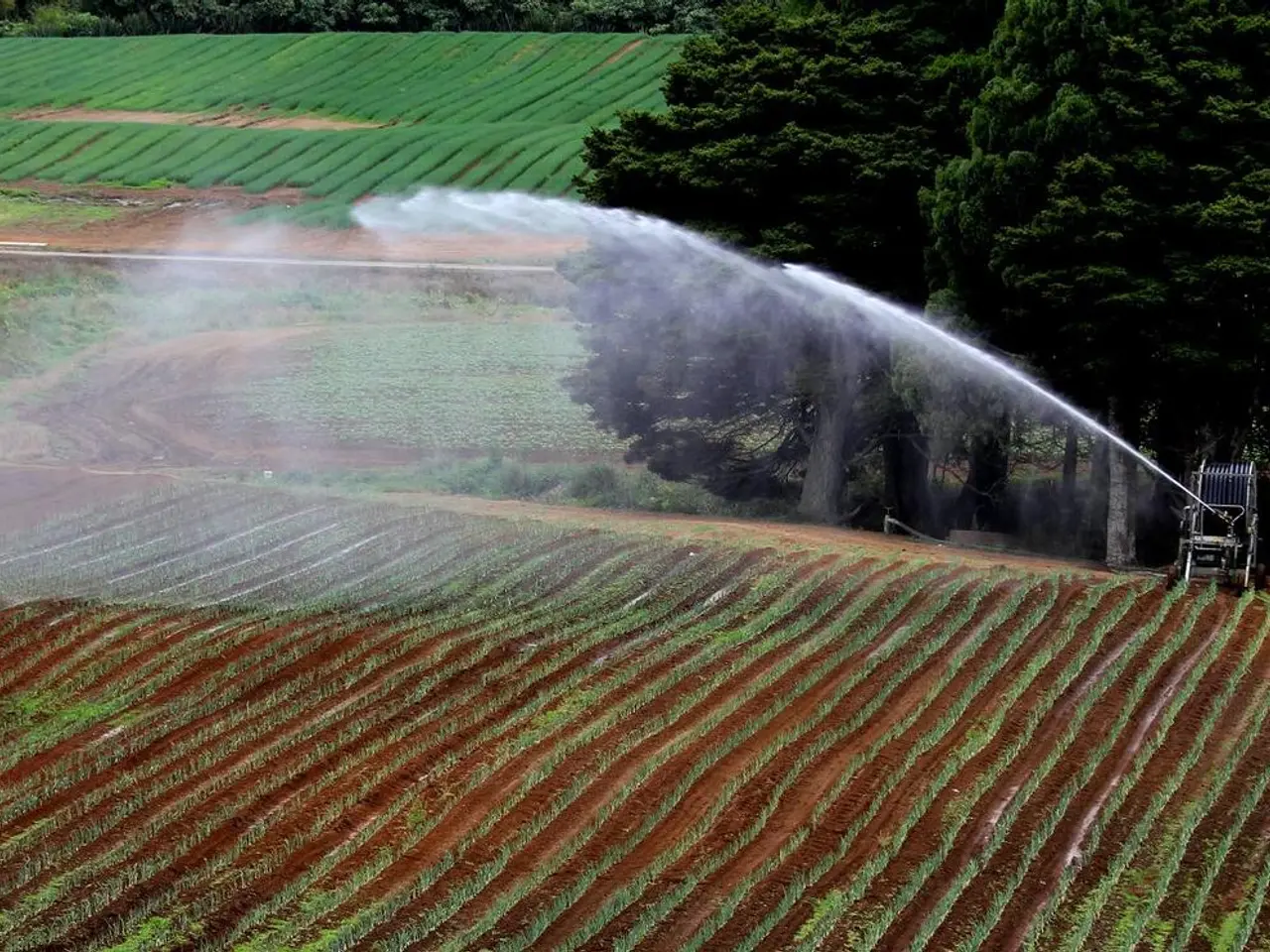Earth's company Sayari collaborates with Stellenbosch University, seeking to progress biochar technology for climate benefits and biodiversity preservation.
In an exciting development, Sayari Earth and Stellenbosch University have joined forces to combat invasive plants and boost carbon capture in South Africa. This partnership, with a solid academic foundation, aims to deliver nature-based solutions that benefit both people and the planet [1][4].
The research project, set to run from August 2025 to July 2026, focuses on the Western Cape and KwaZulu-Natal regions. Its primary objectives are to investigate biomass and soil carbon assessments, biodiversity and economic benefits, and the development of a biochar value chain and market model [1][4].
Sayari Earth brings its mobile biochar technology and carbon monitoring expertise to the table, while Stellenbosch University provides academic leadership in biodiversity research and value chain development. The collaboration addresses South Africa’s invasive plant crisis by removing harmful invasive alien plants (IAPs) and simultaneously capturing carbon, improving water security, and fostering sustainable local economies [1][4].
The project involves converting IAP biomass into biochar, a stable form of carbon that can remain locked away for centuries. In South Africa, IAPs cover approximately 10% of the country's surface, posing a significant threat to biodiversity and water security [2].
By turning waste IAPs into a climate asset, the partnership offers the opportunity to create new livelihood opportunities for local communities. Early findings on value chain feasibility are expected by year-end 2025 [3].
This collaboration positions South Africa as a potential global leader in biochar-based nature-based solutions for climate change mitigation and ecosystem restoration, serving as a replicable model for other regions facing similar ecological challenges [1].
Dr. Hassan Sachedina, CEO and Founder of Sayari Earth, shares the excitement about the partnership, stating, "We are thrilled to be working with Stellenbosch University to tackle South Africa's invasive plant crisis and contribute to the global fight against climate change."
Prof. Guy Midgley, Director of the School for Climate Studies at Stellenbosch University, is equally enthusiastic, expressing, "This partnership presents a unique opportunity to develop sustainable solutions for South Africa's invasive plant issue while creating economic opportunities for local communities."
Joint funding applications will support scaling the model nationally and globally, further cementing South Africa's role as a trailblazer in this field [4]. The research aims to contribute to the evidence base for the sustainability of nature-based solutions and to the global efforts towards achieving a greener and more sustainable future.
This partnership is not related to Unilever's sustainable fragrances from waste plants.
References: [1] Sayari Earth. (2025). Press Release: Sayari Earth and Stellenbosch University Partner to Combat Invasive Plants and Boost Carbon Capture in South Africa. Retrieved from www.sayariearth.com/news [2] South African National Biodiversity Institute. (2020). Invasive Alien Species. Retrieved from www.sanbi.org/invasives [3] Sayari Earth. (2025). Fact Sheet: Mobile Biochar Technology. Retrieved from www.sayariearth.com/technology [4] Stellenbosch University. (2025). Press Release: Stellenbosch University and Sayari Earth Partner to Combat Invasive Plants and Boost Carbon Capture in South Africa. Retrieved from www.sun.ac.za/news
Read also:
- Trump's SNAP reductions and New York City Council's grocery delivery legislation: Problems for city residents highlighted
- Reducing dental expenses for elderlies in Sweden: Over 50% cut in charges for pensioners by the government
- Forty-year-old diet: A list of meal choices to savor
- Exiled Life's Conundrum: A Blend of Liberation, Disillusionment, and Distress





